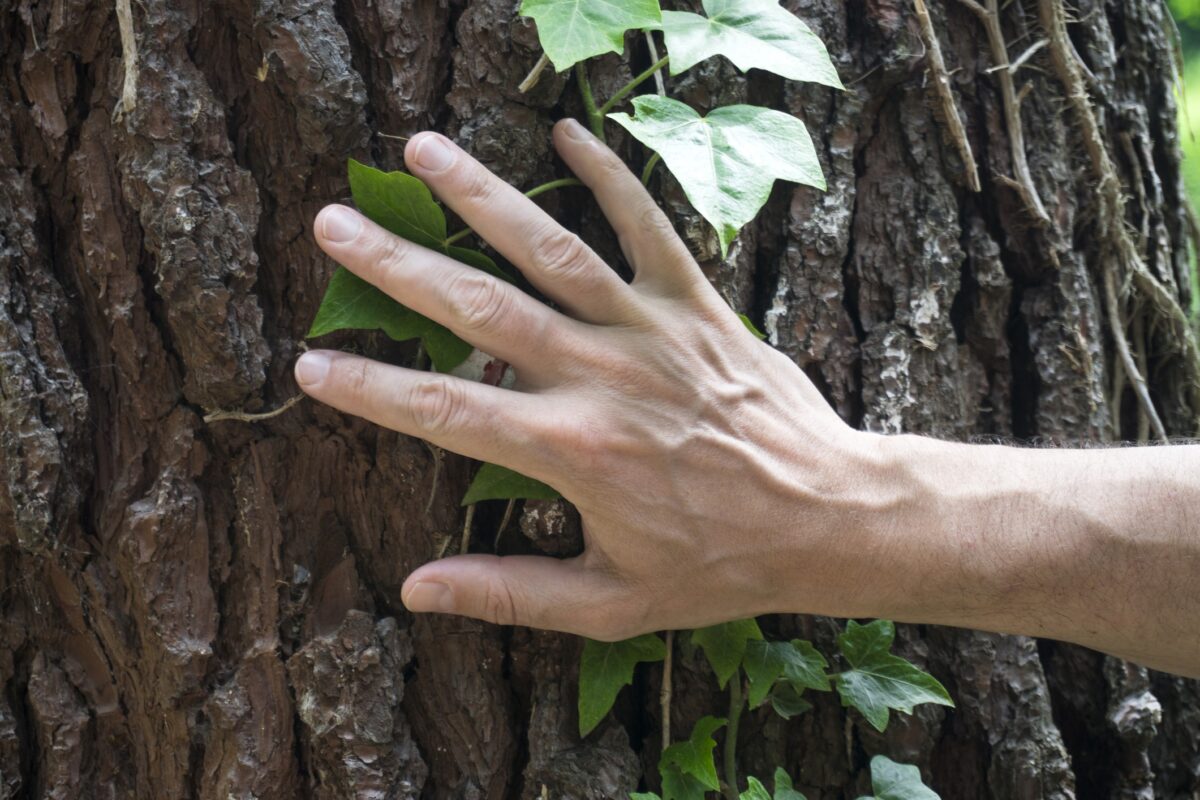Show table of content Hide table of content
Ivy, often accused of choking trees and damaging facades, is systematically eliminated by many gardeners and homeowners. Yet this climbing plant is not as harmful as people think. On the contrary, it plays an essential ecological role and can even protect the structures to which it clings. So why should we change our perception of ivy? Find out why it’s better to leave it in place and how to make the most of it.
IVY IS NOT A PARASITE, IT IS SELF-SUFFICIENT
Contrary to popular belief, ivy (Hedera helix) is not a parasitic plant. Unlike mistletoe, for example, it does not feed on its support. Its roots are firmly anchored in the soil, where it draws all the nutrients it needs.
Its spikes, which enable it to adhere to trunks or walls, do not penetrate the bark or materials, but simply anchor it. This means that it does not absorb anything from its host and does not compromise its vitality. Trees are therefore in no danger when covered in ivy, provided they are in good health.
Garden All good gardeners do this simple action to prevent aphids on rose bushes.
NATURAL PROTECTION FOR TREES
Rather than an aggressor, ivy acts as a natural shield for trees. By forming a dense layer of foliage, it protects them from external aggression.
- In winter, it acts as a thermal insulator, protecting the trunk from frost, which can crack the bark.
- In summer, its foliage limits exposure to direct sunlight and keeps the tree cool, preventing the trunk from overheating.
- Face to the elements, cushioning the impact of rain and wind, reducing the risk of barking due to violent gusts.
However, if the tree is already weakened or has cracks, you need to be careful. A weakened tree is more likely to suffer under the weight of ivy in the event of a storm.
A REFUGE FOR BIODIVERSITY
Ivy not only protects trees, it is also a sanctuary for local wildlife. Its evergreen foliage provides year-round shelter for many species of animal.
- Birds find it a haven in which to nest, safe from predators. Robins, blackbirds and chickadees particularly appreciate this dense cover.
- The pollinating insects, such as bees and butterflies, feed on its late autumn flowers, when few other plants are still in bloom.
- The Ivy berries, which are poisonous to humans, are a valuable food source for birds in winter.
By preserving ivy, we are making a direct contribution to preserving biodiversity in our gardens.
Garden A simple cup at the base of your raspberry bushes – your harvest will double.
PRECIOUS HELP FOR THE SOIL
Did you know that ivy also plays an essential role in soil health? By covering the soil, it limits erosion and encourages moisture retention.
- It prevents water run-off and protects the soil from drying out in summer.
- Leaves, once fallen, naturally enrich the soil and help improve its structure.
- En suffocates certain competing plants, preventing the development of invasive species and leaving the soil more fertile.
IVY AND FACADES: A LITTLE-KNOWN ASSET
Many homeowners fear that ivy will weaken their walls by clinging to them. However, on a healthy, well-maintained wall, it causes no damage. Better still, it can even protect the facade!
- Thermal insulation: by forming a layer of vegetation, ivy helps to regulate temperature. It prevents excessive heat in summer and reduces heat loss in winter.
- Protection against humidity: it acts as a screen against rain, limiting water infiltration into porous materials.
- Depollution air: ivy absorbs large quantities of pollutants from the atmosphere, helping to improve air quality.
WHEN SHOULD IVY CONTROL BE CARRIED OUT?
Even if ivy is beneficial, it may require a minimum of supervision to avoid certain inconveniences.
- On a weak or unhealthy tree, its weight can increase the risk of it falling in the event of a storm. Light pruning will prevent it from becoming too imposing.
- If ivy covers a tree completely, and can mask any signs of disease or decay. So it’s best to keep a close eye on the general condition of the trunk.
- On a cracked wall, it is important to control its growth to prevent it penetrating the gaps and exacerbating the damage.
Garden How a simple gesture can double your lemon tree’s harvest.


